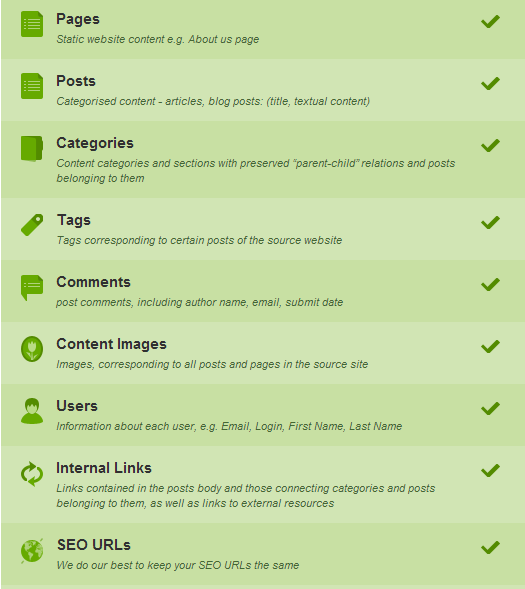The choice of the platform for your website is often no less important than building a foundation of a house. It provides a framework for later developments, so you need to think twice before making the final decision. The thing is, there are multiple aspects to consider when looking for a viable solution to best serve for your web project. Let’s take a look at some of them, to help you choose among Joomla, Drupal, WordPress since they’re sharing the top three positions on the CMS arena.
Type of Website
Not long ago, this criteria formed a distinction between Joomla, Drupal, WordPress. WordPress – for blogging, Drupal – for complex enterprise portals, Joomla – for community websites. Now, however, things have changed. WordPress is still choice #1 among them for blogs, but you can also use it for other types of website, like news, presentation website, online store, and even discussion board (using specialised plugins).
As to Joomla and Drupal, they are suitable for complex projects, like social network sites, corporate portals, membership sites with various access levels etc, but can do a good job with simple ones too.
Learning
If you’re planning on building a website with no help from others, think about how much experience you’ve got.
In case it’s your first website – WordPress is the most plausible choice, as it is easier to set up and get the hang of the major functions.
If you’ve got some experience with websites, think about Joomla, its learning curve is a bit steeper than that of WordPress, but there’s extensive documentation and support, so you’ll soon manage it.
Drupal is known as a “developers’ choice”. Basically, if you don’t have any advanced technical skills, it’s better to choose a less complex platform or – be ready to plunge into coding and scripting for quite some time. You can get precious experience and use the knowledge in the future, anyway.
Ease of Use & Administration
WordPress wins here – its interface is so intuitive you can start off literally right away.
Drupal is the least user-friendly out of the box, but has more capabilities. Joomla falls in between, being not quite so comprehensive as WordPress, but more so compared to Drupal.
Even if you’re going to use a hired help for website building, decide what complexity level is acceptable for your website administrator.
Extensibility
With time, you might want to expand your website or add more functionality. How easy it can be done using the three CMSs in question? Here, their popularity is a favourable factor. Each of them has a big community of users, who contribute numerous extensions (many of them are free) to help your site do much more than it originally could.
As to the number of plugins available, WordPress features the most, with Joomla following. Installing the plugins is usually very simple. Drupal doesn’t have so many ready-made plugins, because it’s mostly used for highly customised sites and many plugins are developed for a specific purpose and not available for public usage.
Willing to Change your CMS Platform?
Above are the basic tips that may be helpful in making a selection for your website platform. There are hundredth of other factors that might need to be considered too. Fortunately, unlike the house foundation, it’s possible to change your website CMS platform, even after the site has been built. It’s possible to switch to your website data to WordPress, Joomla or Drupal fast and with no downtime.
Here’s What You Can Migrate To WordPress, Joomla or Drupal

aisite online service is here to handle the migration automatedly and save you from the hassle. After you register an account, there are only 4 steps separating you and your prospective website. So, don’t wait, set up your FREE Demo migration and get the website you desire faster than you can imagine!










